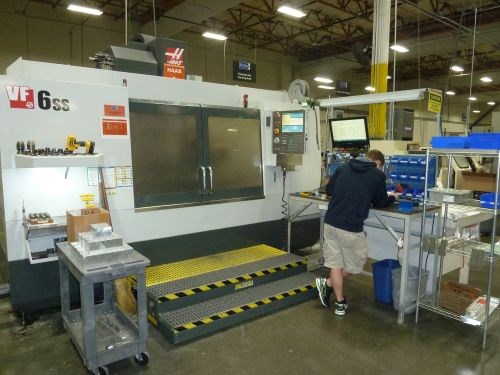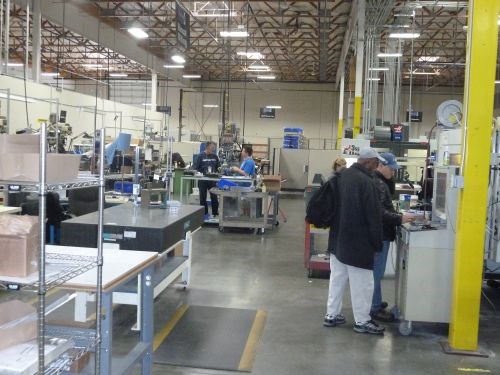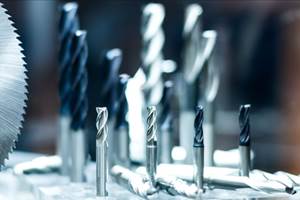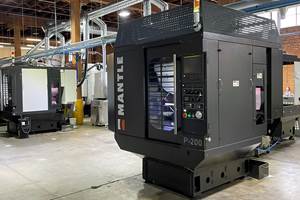Searching for Skilled Workers? Here’s Part of the Solution
In recent years, manufacturers have found it increasingly difficult to find trained, skilled employees, especially in the metalworking industry.
Share





In recent years, manufacturers have found it increasingly difficult to find trained, skilled employees, especially in the metalworking industry. While there is no one answer to this dilemma, the solution may be found in a multi-pronged approach. One is to make students aware that their perception of manufacturing as a dirty and dangerous industry is outdated, and that a well-run job shop is a clean environment filled with high-tech equipment. Another solution is to provide individuals with disabilities with the tools they’ll need to enter the industrial workforce. In that same vein, employers must be informed that any preconceived notions they may have of massive difficulties associated with accommodating individuals with disabilities in the workplace are behind the times, as well.
My visit to Skills Inc.’s manufacturing/training facility in Auburn—one of four campuses in Washington State—was a revelation on many levels. First, I learned that the company is a not-for-profit entity that was established with the support of Boeing in the late ‘60s. The company now generates nearly 100 percent of its operating revenue, including purchasing its own equipment with little assistance from state and federal grants. In addition, its range of services is impressive. The company manufactures aerospace parts and provides chemical surface finishing. It also offers employee training, certification and job placement, and even technical and business consulting services. Central to both manufacturing and training is staying abreast of the latest technologies, such as Vericut CNC simulation software provided by CGTech. Vericut helps to avoid collisions and correct toolpath errors before programs are even loaded into the machine, the company says, eliminating the need for manual prove-outs and increasing overall process efficiency.
That same sense of efficiency permeates the operation. Based on their strengths, and taking their particular challenge into account, trainees and employees are guided toward positions in which they can succeed. An employee with a physical disability, for instance, may be drawn to positions requiring programming or CNC machine operations. And ergonomics dictate the arrangement of each workstation to suit that person’s particular needs, with all the tools and devices they require carefully arranged and within easy reach.

Every tool that an employee might conceivably require is carefully arranged at each workstation.
Dan Olson, plant manager, has witnessed many success stories. “Nicholas Podszus joined our Aerospace Internship Program (AIP) in September of 2010. When the idea of the program was presented to him by his teacher, he was relieved to hear there was an alternative to the traditional school setting that would still allow him to complete his high school education. Nicholas has always worked well with his hands and didn’t enjoy the long days spent in a classroom environment. As an alternative, he was able to hop on a school bus and spend half of his day at Skills Inc. where he gained exposure to areas in manufacturing such as milling, CNC, and shearing, finish—takedown, packaging, and receiving, etc.—and in an office setting.”
Mr. Podszus graduated from high school and the AIP in June of 2011, and he was one of two students to get a full-time permanent job offer. He has worked as a manual machinist for three years, and he has been promoted to a Level 2 machinist.
HarleyFay Johnson entered the AIP in her senior year of high school. She was able to gain exposure to many areas of the business including aerospace manufacturing, aerospace finish, and even some administrative functions throughout the duration of her time in the program. As a result, she regained control of her education and successfully graduated from high school.
“She was offered a three-month paid internship, where she communicated her desire and aspirations to become a machinist,” Mr. Olson says. “She began her summer by working primarily in the manual machine area, where she excelled. At the conclusion of her internship, she was offered a full-time permanent position as a manual machinist. Today, HarleyFay is also gaining experience and developing her skills in the CNC machine area. She is an example of an ambitious and motivated woman, and we are excited to see her continued growth,” he says.
“You would be hard-pressed to find more dedicated, hardworking individuals than those we train and employ here,” Mr. Olson says. “We take great pride in every single aspect of our operation, from the appearance of our facilities to the quality of our products.”

A clean, uncluttered shop floor denotes employee pride, impresses visiting customers, and makes moving machines and materials easier.
Related Content
Addressing the Manufacturing Labor Shortage Needs to Start Here
Student-run businesses focused on technical training for the trades are taking root across the U.S. Can we — should we — leverage their regional successes into a nationwide platform?
Read MoreIn Moldmaking, Mantle Process Addresses Lead Time and Talent Pool
A new process delivered through what looks like a standard machining center promises to streamline machining of injection mold cores and cavities and even answer the declining availability of toolmakers.
Read MoreFinding the Right Tools for a Turning Shop
Xcelicut is a startup shop that has grown thanks to the right machines, cutting tools, grants and other resources.
Read MoreDN Solutions Responds to Labor Shortages, Reshoring, the Automotive Industry and More
At its first in-person DIMF since 2019, DN Solutions showcased a range of new technologies, from automation to machine tools to software. President WJ Kim explains how these products are responses to changes within the company and the manufacturing industry as a whole.
Read MoreRead Next
Last Chance! 2025 Top Shops Benchmarking Survey Still Open Through April 30
Don’t miss out! 91ÊÓƵÍøÕ¾ÎÛ's Top Shops Benchmarking Survey is still open — but not for long. This is your last chance to a receive free, customized benchmarking report that includes actionable feedback across several shopfloor and business metrics.
Read MoreAMRs Are Moving Into Manufacturing: Considerations for Implementation
AMRs can provide a flexible, easy-to-use automation platform so long as manufacturers choose a suitable task and prepare their facilities.
Read MoreMachine Shop MBA
Making Chips and 91ÊÓƵÍøÕ¾ÎÛ are teaming up for a new podcast series called Machine Shop MBA—designed to help manufacturers measure their success against the industry’s best. Through the lens of the Top Shops benchmarking program, the series explores the KPIs that set high-performing shops apart, from machine utilization and first-pass yield to employee engagement and revenue per employee.
Read More






















